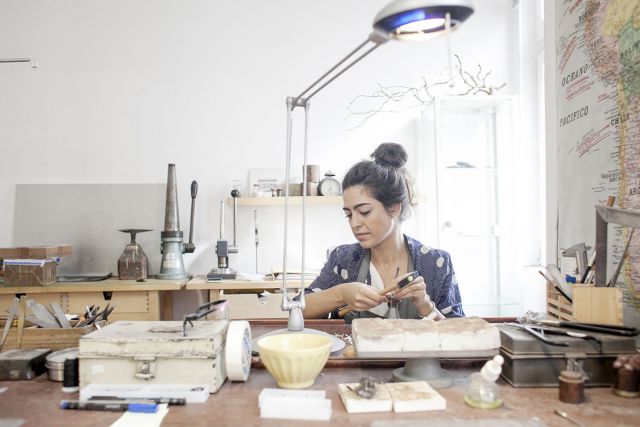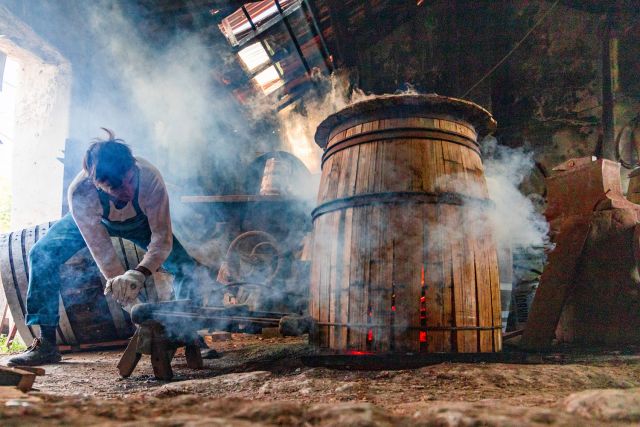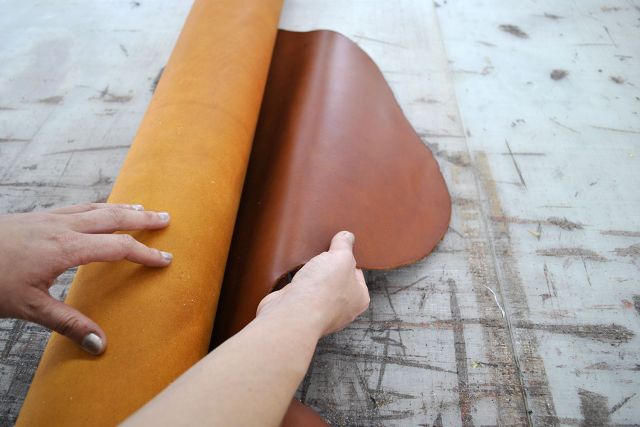A set of cooking spatulas made from a single hardwood branch found on the coast of the Azorean island of São Miguel. The beautiful streaked golden colour of the wood suggests it could be a species of acacia. The design is focused on utility with a slight curvature lengthwise and thinned working ends to slide under a thick steak or a paper-thin crêpe. Made entirely by hand, using only hand tools, the wood is treated with linseed oil and beeswax.
Length 30 cm
Width 4 cm
Height 0.5 cm
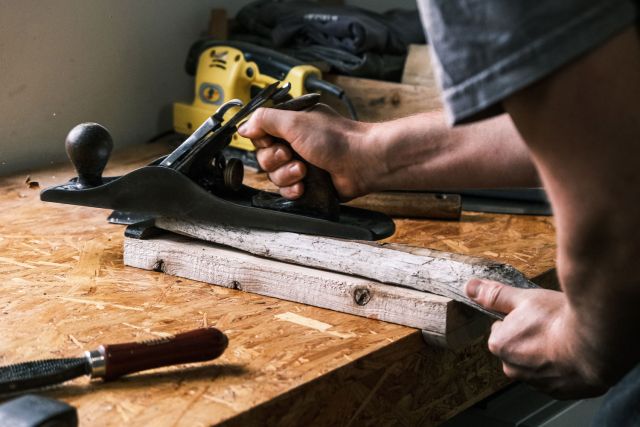
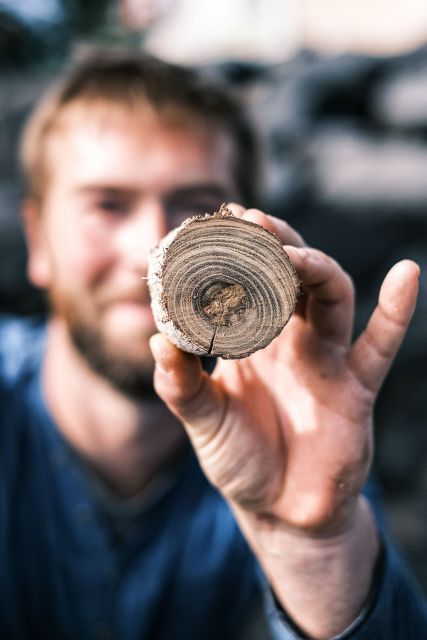
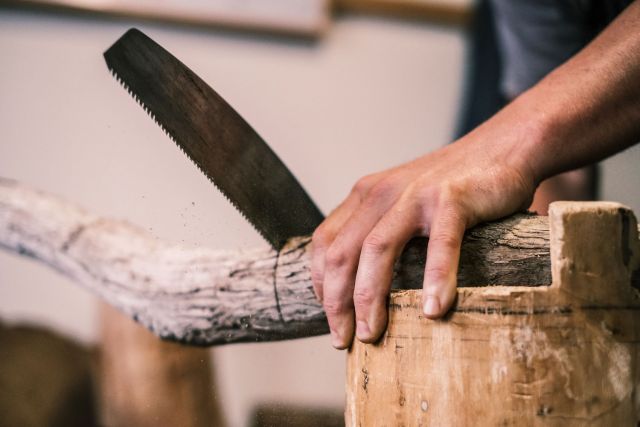
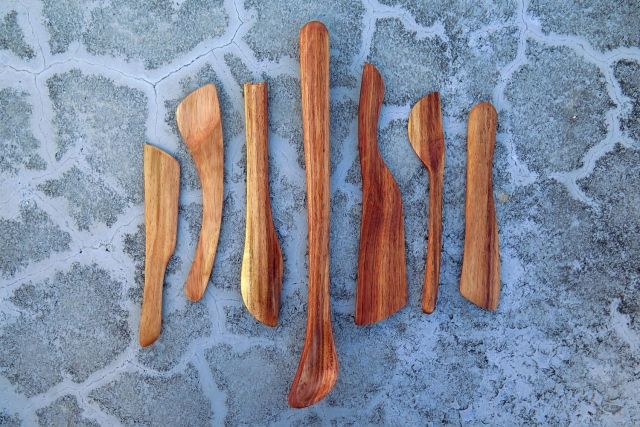
Zsombi Keresztes
- S87WOOD
- Woodcarver
- Ponta Delgada, Portugal
- Master Artisan
- Recommended by Centro de Artesanato e Design dos Açores
Monday to Friday 09:00 - 18:00, Saturday 09:00 - 13:00
+351 910875091
Breathing new life into wood
- • Zsombi collects driftwood to make kitchen tools
- • His first spatulas were gifts to friends who shared his passion for cooking
- • His utensils reveal the interior beauty of weathered salty wood
Romanian wood sculptor Zsombi Keresztes learnt to carve from his father and grandfather. “I have been whittling with a pocket knife ever since I can remember.” When he moved to the Azores and couldn’t find any wooden cooking tools in the kitchen of his rented house, he broke a board off a pallet to make a spatula with a paring knife. His next spatulas were offered to friends who share his passion for cooking and they encouraged him to sell his pieces. “I realised there was perhaps an interest in what I do, so I quit my graphic designer job and the Azorean artisan centre (CRAA) helped me set up a workshop within their start-up incubator programme.” Protective of his environment, Zsombi’s uniquely shaped kitchen tools are made from driftwood he finds on his island’s shores.
Read the full interviewWorks
Photo: ©All rights reserved

Photo: ©All rights reserved
This cooking spatula was made from black locust wood salvaged from a century old gatepost. The spatula’s shape is meant to be comfortable even when used for a long time and it was tapered thin at the working end to be able to slide under and flip inside the pan. The chocolate brown colour comes from the extended curing time (normally a golden yellow colour). Made entirely by hand using hand tools it is treated with walnut oil.
Height 28 cm
Width 5 cm

Photo: ©All rights reserved
This large flipping spatula was made from cedar wood downed by winter storms in the Azores. The extra length of the handle was designed to easily and safely flip and stir in pans or woks which are used with high temperatures. After being roughed out with a carving axe and sloyd knives, it was left to dry and then sanded smooth to enhance the natural straw colour and pink heartwood streaks of the wood. It was treated with walnut oil.
Height 35 cm
Width 5 cm

Photo: ©All rights reserved
This set of cooking utensils was made from a single branch of New Zealand ironwood found on the shores of São Miguel island. Also known as pohutukawa, this species, with an attractive purplish heartwood, is extremely dense and hard to work with. The spatulas are designed for general stirring and flipping, while the curved piece is excellent for scraping pans. All are made entirely by hand, using only hand tools and finished with linseed oil.
Height 27 cm
Width 4 cm

Photo: ©All rights reserved
A unique wooden spoon with a special design combining curves to achieve the final comfortable and aesthetically pleasing shape. Made from hornbeam, a very dense and hard European wood, its colour is pale, almost white with subtle, yet attractive grain figures. The bowl of the spoon is big enough to taste soups and sauces but can also be used to serve. It is made entirely by hand using traditional woodworking hand tools and treated with walnut oil.
Height 27 cm
Width 4 cm





